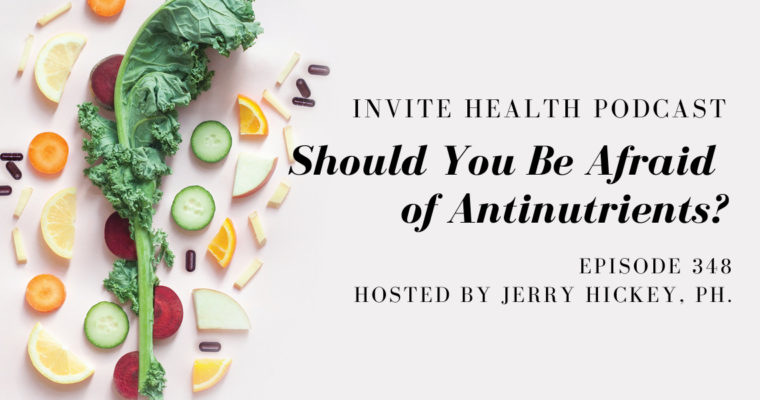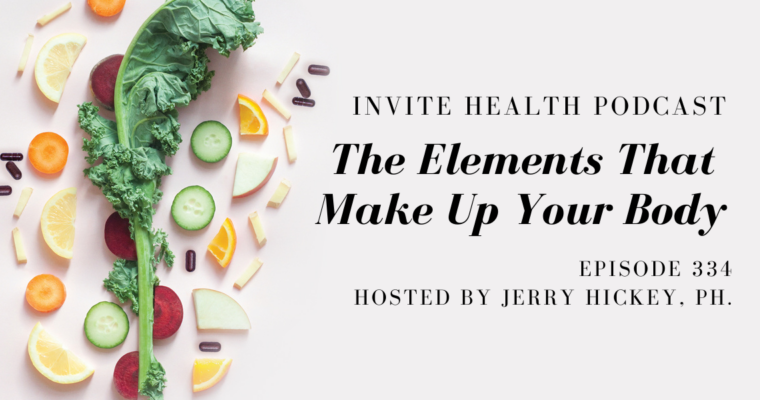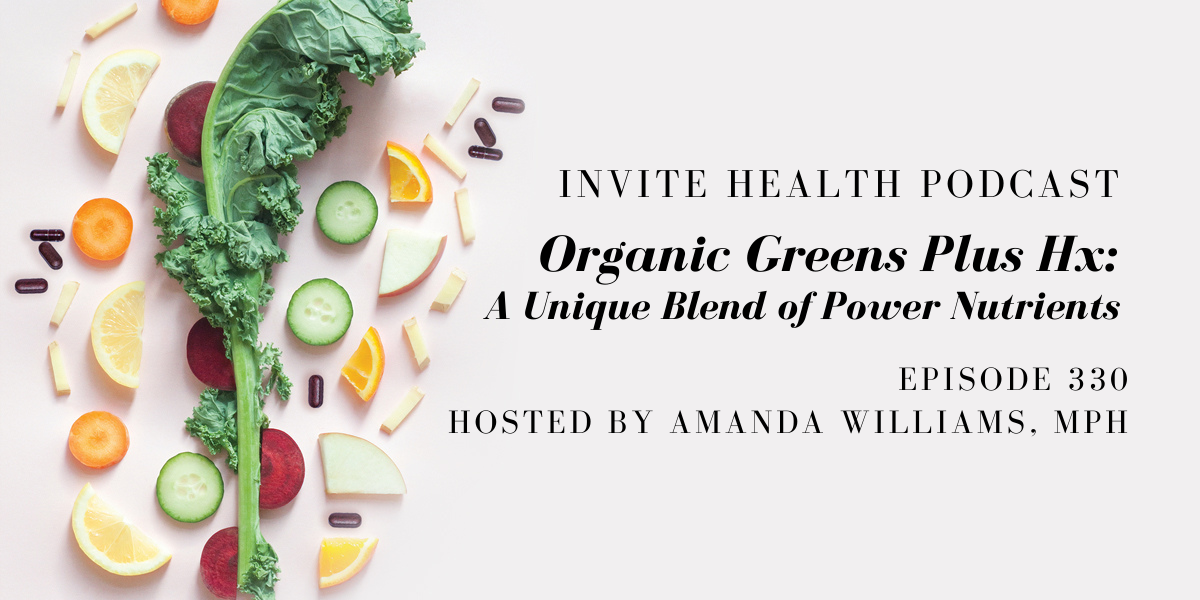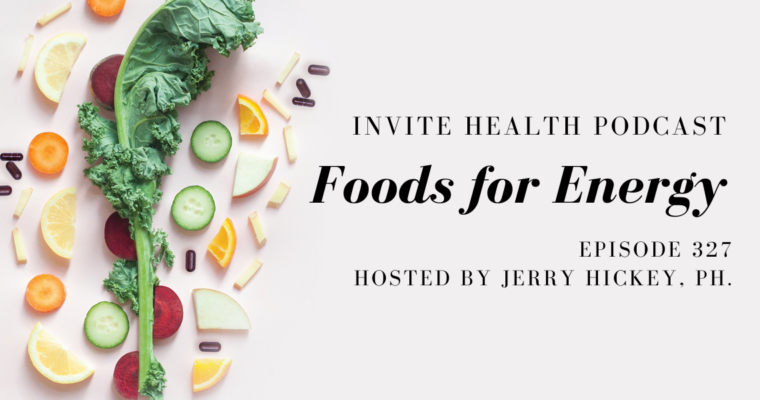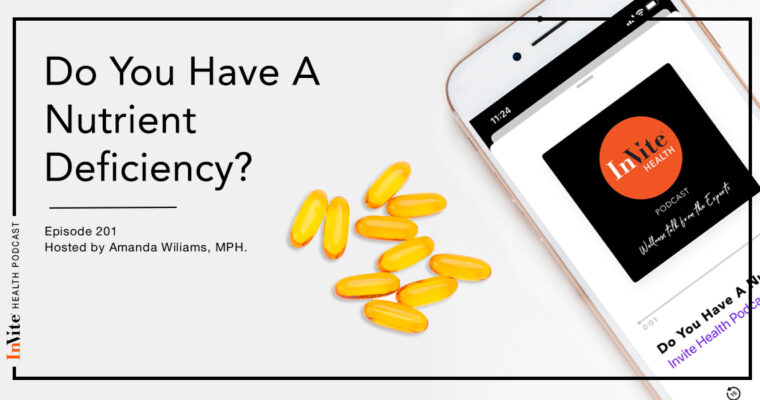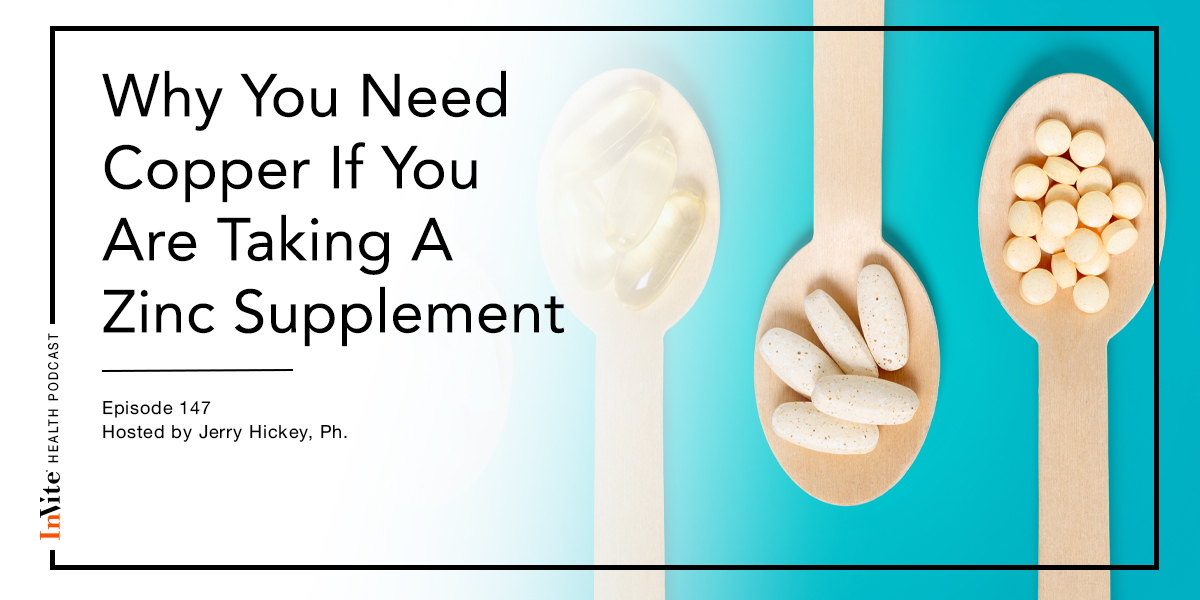Invite Health Podcast, Episode hosted by Jerry Hickey. Ph
Subscribe Today!
On today’s episode, we are going to be talking about the micronutrient Copper. Micronutrient means that you only need it in small amounts but it is an essential mineral that does many important things for the body, including being needed for proper immune system function. Here’s the issue – we are still in the Coronavirus Pandemic and many are realizing that zinc is extremely important for their immune system. But if you are taking a lot of Zinc for your immune system, you may need a little bit more copper. Let’s discuss!
The Link Between Zinc and Copper
Zinc is important for the immune system. You need zinc for many functions:
- To create immune cells
- For immune cell function
- For cellular repair after an infection
- To prevent your own immune system from damaging organs and tissues
The Importance of Zinc For Immunity During The Coronavirus. Listen Now >>
Many people are taking high doses of zinc to help reduce the risk of developing a severe infection, which I believe is a good idea. The problem is that Zinc interferes with the absorption of copper.
Copper is an essential mineral and it is involved with:
- Energy creation
- Iron metabolism
- Connective tissue
- Bone formation
- The formation of neurotransmitters in our brain.
Copper is also required as an antioxidant and importantly during the times of the Coronavirus, for immune system function. Normally, you get enough from your food and also in your multiple-vitamin. But if you take Zinc, you may need a little bit more to play it safe. Dietary sources of copper include shellfish, seeds and nuts, wheat bran, whole grains, chocolate, and organ meats.

Important Functions of Copper In Your Body
Energy production
You need copper to create energy from the food you eat. Without it, you cannot create energy. A copper-dependent enzyme called cytochrome c oxidase plays a critical role in creating energy out of your food. It triggers the reduction of oxygen into water, generating an electrical gradient, which is an energy source used by the power plants called mitochondria of our cells to create the vital energy-storing molecule, ATP.†
Connective tissue formation
Another copper-containing enzyme, lysyl oxidase, is required for the formation of collagen and elastin. Collagen is required to build skin, hair, and nails, bone, joint tissue, ligaments and tendons and many other tissues. Elastin is needed for the elasticity and resilience of your skin. So, copper is essential for the formation of strong and flexible connective tissue. It also helps maintain the integrity of connective tissue in the heart and blood vessels and also plays a role in bone formation.†
Learn More About The Importance Of Collagen. Click Here >>
Iron metabolism
Four copper-containing enzymes, known as ferroxidases convert iron into its ferric iron form. This is the form that iron takes on to be transported to bone marrow to make red blood cells. Adequate copper is necessary for normal iron metabolism and red blood cell formation. Anemia is a clinical sign of copper deficiency. With this deficiency, it is difficult to transport iron and instead of creating red blood cells the iron tends to accumulate in the liver leading to hepatic iron overload and/or cirrhosis.†
Immune system function
Copper is known to play an important role in the development and maintenance of immune system function, but the exact mechanism of its action is not yet known. Neutropenia (abnormally low numbers of white blood cells called neutrophils) is a clinical sign of a deficiency in humans. It is also needed for phagocytosis; the ability of very large immune cells called macrophages to engulf and destroy infectious microbes. You don’t want to be low in Zinc or Copper during virus season.†
Other Key Functions:
- Central nervous system
- Neurotransmitter synthesis
- Formation and maintenance of myelin
- Melanin formation
- Antioxidant functions
Thank you for tuning in to the Invite Health Podcast. You can find all of our episodes for free wherever you listen to podcasts or by visiting www.invitehealth.com/podcast. Make sure you subscribe and leave us a review! Follow us on Facebook, Twitter and Instagram at Invite Health today. We’ll see you next time on another episode of the Invite Health Podcast.


